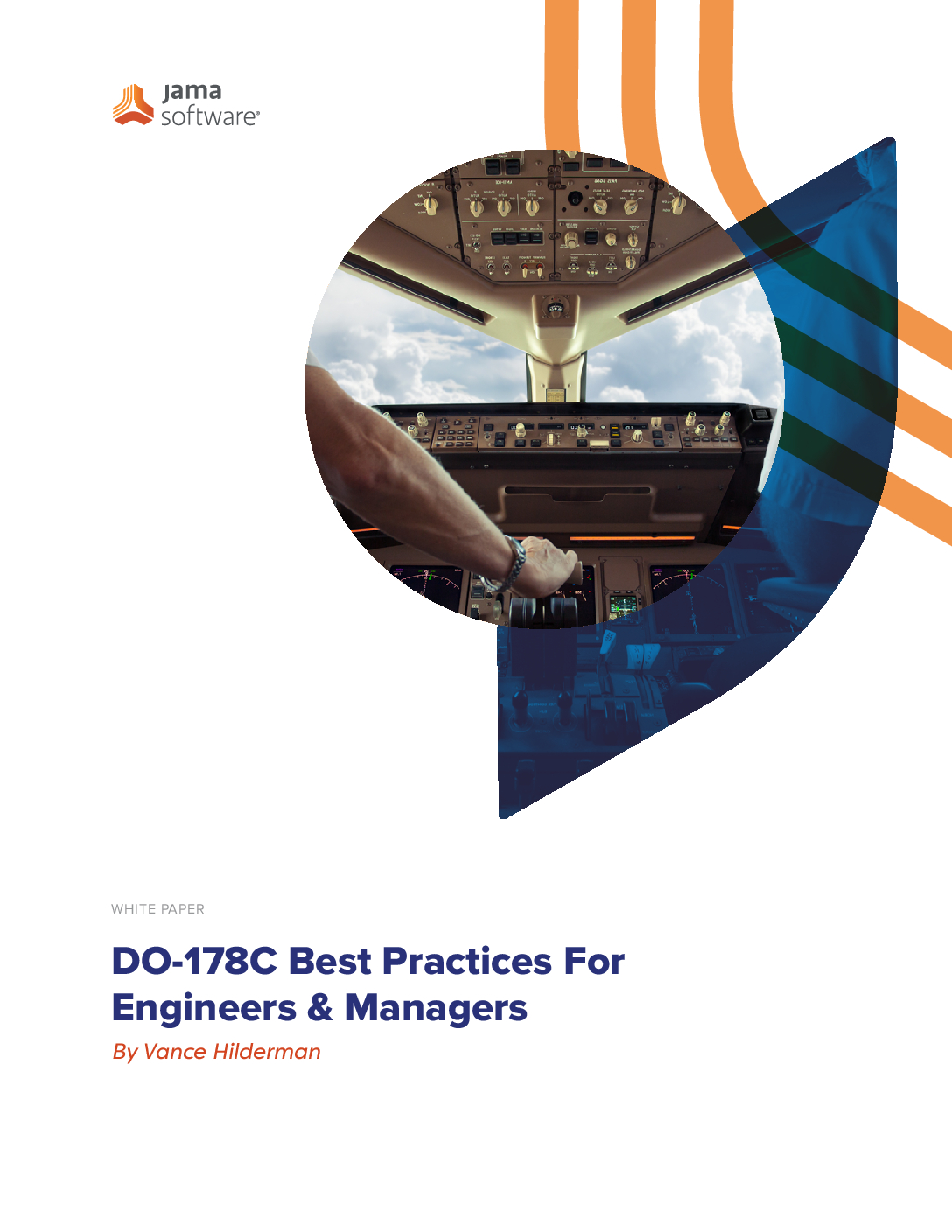
DO-178C Best Practices for Engineers and Managers
Achieving compliance with DO-178C, the global standard for aviation software safety, can be complex for both engineers and managers tasked with developing airborne systems and equipment. This in-depth whitepaper, DO-178C: Best Practices for Engineers and Managers, serves as a practical guide, offering actionable insights for navigating the critical aspects of DO-178C, from initial planning through verification and certification. Whether you’re a seasoned engineer, a project manager, or a newcomer to the field, this whitepaper delivers essential guidance for improving efficiency and meeting compliance objectives without compromising on safety or quality.
Why DO-178C Matters
As the cornerstone of software development for airborne systems, DO-178C is not just a regulatory hurdle; it is a comprehensive framework that ensures aircraft software functions reliably under a range of conditions, safeguarding both crew and passengers. For companies aiming to enter or remain in the aerospace market, understanding and implementing DO-178C requirements is essential for successful product certification. This whitepaper demystifies the standard’s core principles, helping you understand how to interpret and apply its guidelines to reduce development costs, manage risks, and enhance software quality.
What You’ll Learn
The whitepaper is structured to provide practical takeaways across multiple stages of the DO-178C lifecycle. It emphasizes proven strategies and best practices that can simplify compliance and improve the safety and reliability of your software development processes. Key areas covered include:
- Planning for Compliance: Learn how to create a robust software development plan (SDP) and a software verification plan (SVP) to meet DO-178C standards. Discover practical tips on managing project scope and setting realistic timelines for certification readiness.
- Requirements and Design Assurance: DO-178C places strong emphasis on traceability, from requirements to testing. This whitepaper breaks down best practices for capturing and managing requirements effectively, ensuring each requirement is verifiable and traceable across the development lifecycle.
- Effective Testing and Verification: One of the biggest challenges in DO-178C compliance is implementing efficient verification processes that meet the standard’s high rigor without overwhelming development resources. This section introduces strategies for streamlining test procedures, focusing on aspects such as requirements-based testing, structural coverage analysis, and tool qualification.
- Documentation and Process Management: Comprehensive documentation is essential in DO-178C, but it can be time-consuming and costly. Learn methods for creating clear, concise documentation that meets DO-178C’s expectations while minimizing project delays and administrative burden.
- Managing Change and Scaling Compliance Efforts: Compliance is an ongoing effort, especially for large or evolving projects. The whitepaper highlights best practices for managing change, addressing unforeseen issues, and scaling compliance activities effectively, whether your project involves a small team or multiple divisions.
For Engineers and Managers Alike
This whitepaper is crafted for both engineers and managers, recognizing the unique roles and challenges each face in DO-178C compliance. Engineers will gain insights into practical, hands-on tactics for developing compliant code and verifying its safety, while managers will find strategies for resource allocation, deadline management, and communication with regulatory authorities.
By leveraging the guidance provided in this whitepaper, you can gain a deeper understanding of DO-178C’s expectations, streamline your development and verification processes, and take proactive steps toward compliance with confidence. Stay ahead of regulatory changes, protect your company’s market position, and contribute to safer aviation software by downloading DO-178C: Best Practices for Engineers and Managers today.
In this paper, we’ll walk through the 10 most important DO-178C best practices which can minimize the following important attributes in your development:
- Cost
- Risk defects
- Reuse difficulty
- Certification Roadblocks